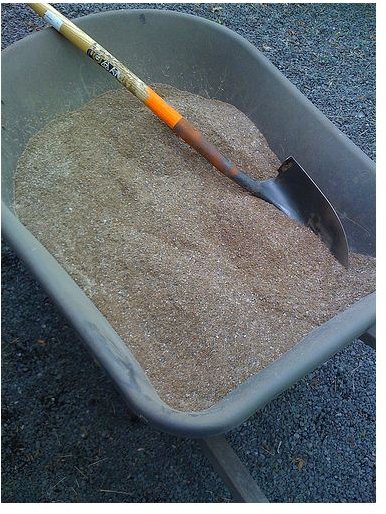Advantages and Disadvantages of Organic Fertilizers
What’s the Difference?
What makes a fertilizer organic? Organic fertilizers are those that are made from organic matter. Unlike with non-organic fertilizers, no synthetic chemicals are used. A fertilizer is basically meant to add nutrients to the soil, serving to provide nutrition for plants. In the case of organic products, such as natural minerals, sea greens, and plant and animal byproducts, the nutrients added to the soil are those that are found naturally in the organic matter that is used. With a conventional product, chemical additives act as the source of necessary nutrients, namely nitrogen, phosphorus, and potassium.
Organic fertilizers are popular because they are the eco-friendly choices, but they are also better for the soil and for plant growth over the long term. While there are many benefits to using a more natural product or even making your own homemade organic fertilizer, non-organic fertilizers are still popular and for some gardeners they may be a better option. Taking a look at the advantages and disadvantages of organic fertilizers you can decide if the benefits of natural materials outweigh the potential drawbacks.
Why Organic Is a A Good Idea
What is so great about organic fertilizers? Aside from acting as a source of plant nutrition, they have a number of benefits for the garden, for the gardener, and for the environment. Adding organic matter to the soil improves the soil quality — better drainage, increased ability to hold nutrients, and more beneficial microorganisms and earthworms to break down the organic matter. In the long term using organic, whether store-bought or homemade, you will have more nutrient-rich, higher quality soil than if you continually amended with chemical additives.
Organic materials have to be broken down in order for the nutrients to be available. This means that organic fertilizers are by nature slow-release. This is beneficial for providing a more even source of nutrients, ensuring adequate nutrition.
Another potential benefit, depending on which organic fertilizer you choose to use, is cost. While you can purchase a variety of different organic materials or mixes, you can also have organic fertilizer for free. How? By using your own organic matter byproducts or those from local businesses. From making your own homemade compost to offering to take animal manure from farms, it is possible to nourish your soil

with natural materials without having to spend a lot of money.
Organic fertilizers are more eco-friendly. They first of all do not introduce more chemicals into the environment, and second, they improve soil quality. When chemicals are added to the soil the quality diminishes overtime, leading to soil and plants that are lacking in nutrition and soil that needs plenty of amendments to be optimal for growth.
What Are the Possible Disadvantages of a Natural Fertilizer?
What are the disadvantages of using organic fertilizers? The main reason that gardeners may opt for the conventional product is convenience. Non-organic fertilizers are often easier to apply, are more concentrated, have the option of providing a quick sources of minerals, and the entire process from purchasing to applying is more straightforward. With organic fertilizers time is necessary for results. The matter has to be broken down and even then the concentration of available nutrients will be moderate.
Also, depending on what you use you may not know for sure what ratio of nutrients you are adding to the soil. Conventional products are made with a specific ratio of nutrients. With organic matter the nutrition is what is available in the actual material. For example soybean meal is high in nitrogen and kelp meal is a great source of potassium. Taking an extra step and having your soil tested to see what nutrition is

required may be needed with the use of organic products. Choosing from the different available organic fertilizer materials to then create the right balance can be complicated for someone who prefers to simply buy what works, apply it, and buy the same product again next year.
Organic fertilizers can be more expensive when using store bought brands. This does not have to be the case, but the less expensive alternatives — using your own organic matter and finding a resource in the community — can take time and effort. Some materials on their own are very inexpensive, for example alfalfa meal may cost less than a non-organic fertilizer, but you may choose to buy multiple materials to create a nutritional balance and more actual matter is required when using organic.
Finally, while organic fertilizers are much more eco-friendly, they are not necessarily free from toxins. For example, cottonseed meal would have pesticide residues unless the cotton was grown organically. Organic fertilizers are natural materials rather than synthetic, buy they are not from organic certified sources unless indicated. While this is not necessarily a disadvantage as organic fertilizers are still better for the environment, it is important to understand exactly what you are purchasing when making a decision.
Understanding the advantages and disadvantages of organic fertilizer you can decide if switching to organic matter is right for you. While organic does mean natural, better for the soil and better for the plants, it can be a more involved process. Non-organic fertilizer is not beneficial for the soil in the long-term and in fact will diminish the quality of the soil and introduce chemical additives into the environment, but the ease of use may be preferable.
References
NC State University Cooperative Extension https://www.ces.ncsu.edu/cumberland/fertpage/organic.html
Organic Fertilizer Guide https://www.extremelygreen.com/fertilizerguide.cfm
Colorado State University Extension <cmg.colostate.edu/gardennotes/234.pdf>
Planet Natural https://www.planetnatural.com/site/xdpy/sg/Organic%20Fertilizers
photo by Trees for the Future
photo by Steven DePolo
photo by John Athayde
